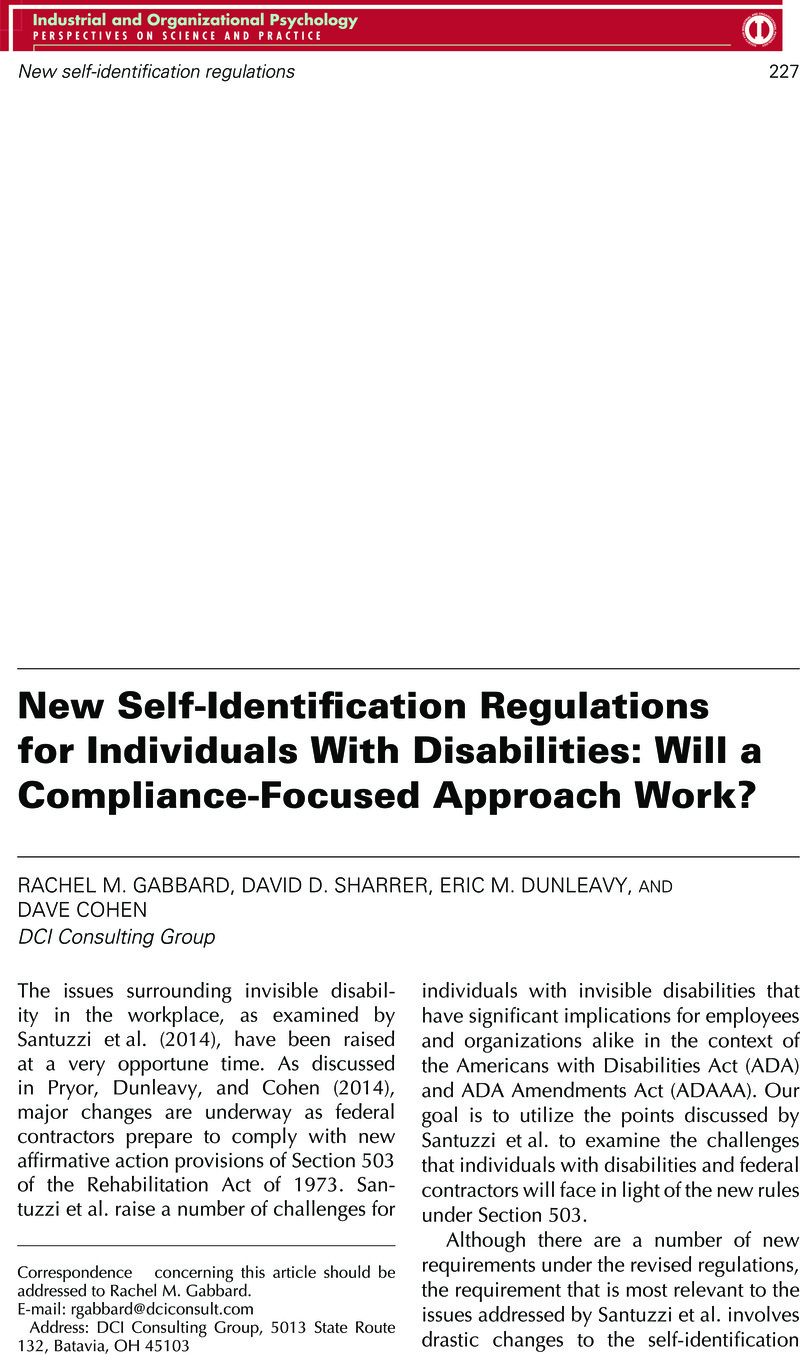Crossref Citations
This article has been cited by the following publications. This list is generated based on data provided by Crossref.
Santuzzi, Alecia M.
Keating, Robert T.
Martinez, Jesus J.
Finkelstein, Lisa M.
Rupp, Deborah E.
and
Strah, Nicole
2019.
Identity Management Strategies for Workers with Concealable Disabilities: Antecedents and Consequences.
Journal of Social Issues,
Vol. 75,
Issue. 3,
p.
847.
Doyle, Nancy Elizabeth
McDowall, Almuth
and
Cai, Zhiqiang
2019.
Context matters: A review to formulate a conceptual framework for coaching as a disability accommodation.
PLOS ONE,
Vol. 14,
Issue. 8,
p.
e0199408.
Doyle, Nancy
and
McDowall, Almuth
2022.
Diamond in the rough? An “empty review” of research into “neurodiversity” and a road map for developing the inclusion agenda.
Equality, Diversity and Inclusion: An International Journal,
Vol. 41,
Issue. 3,
p.
352.



